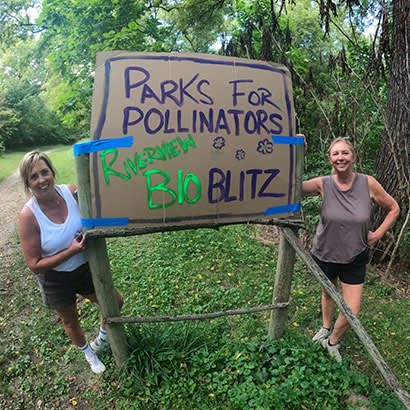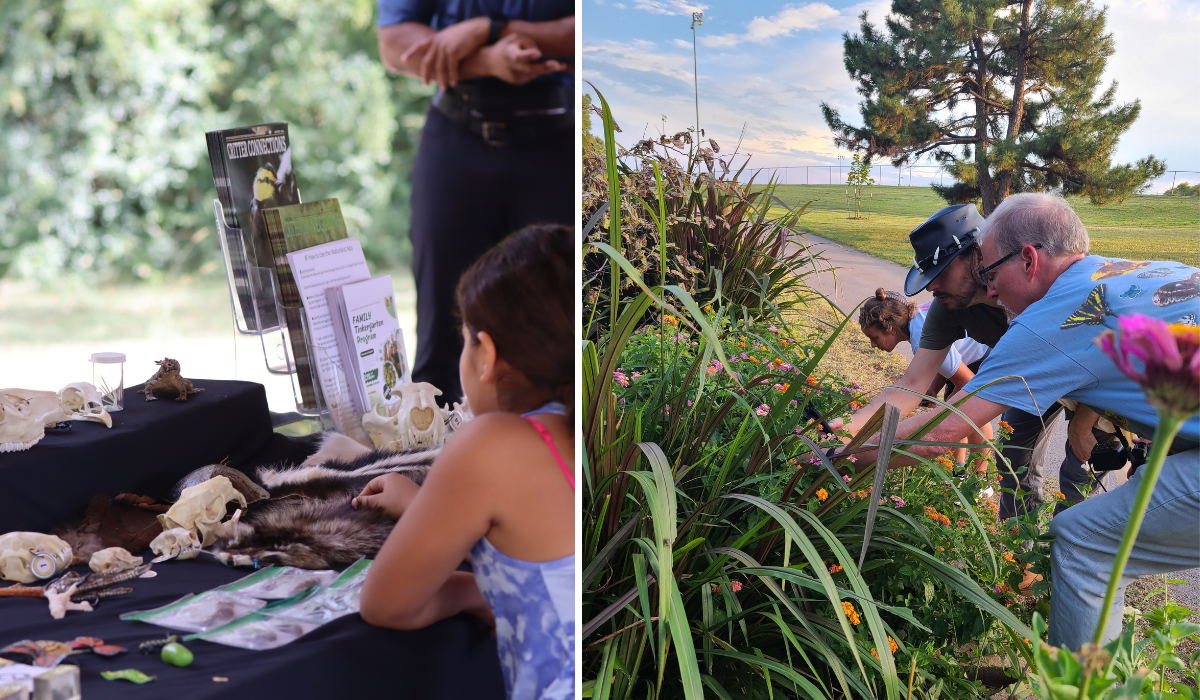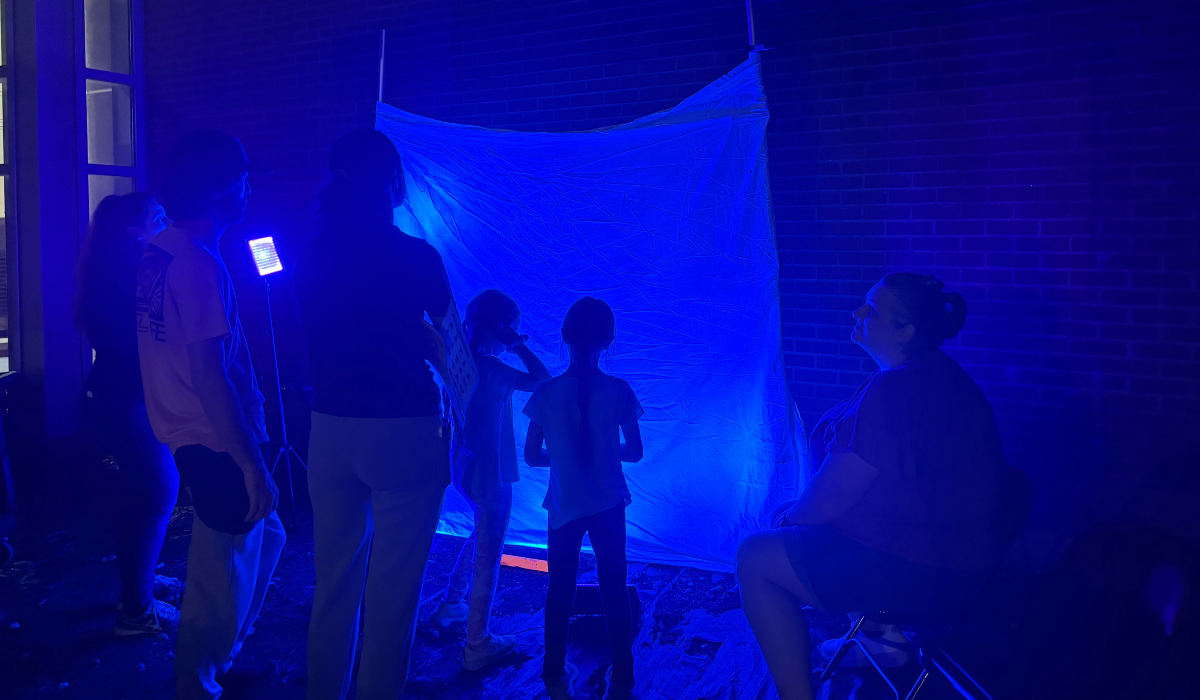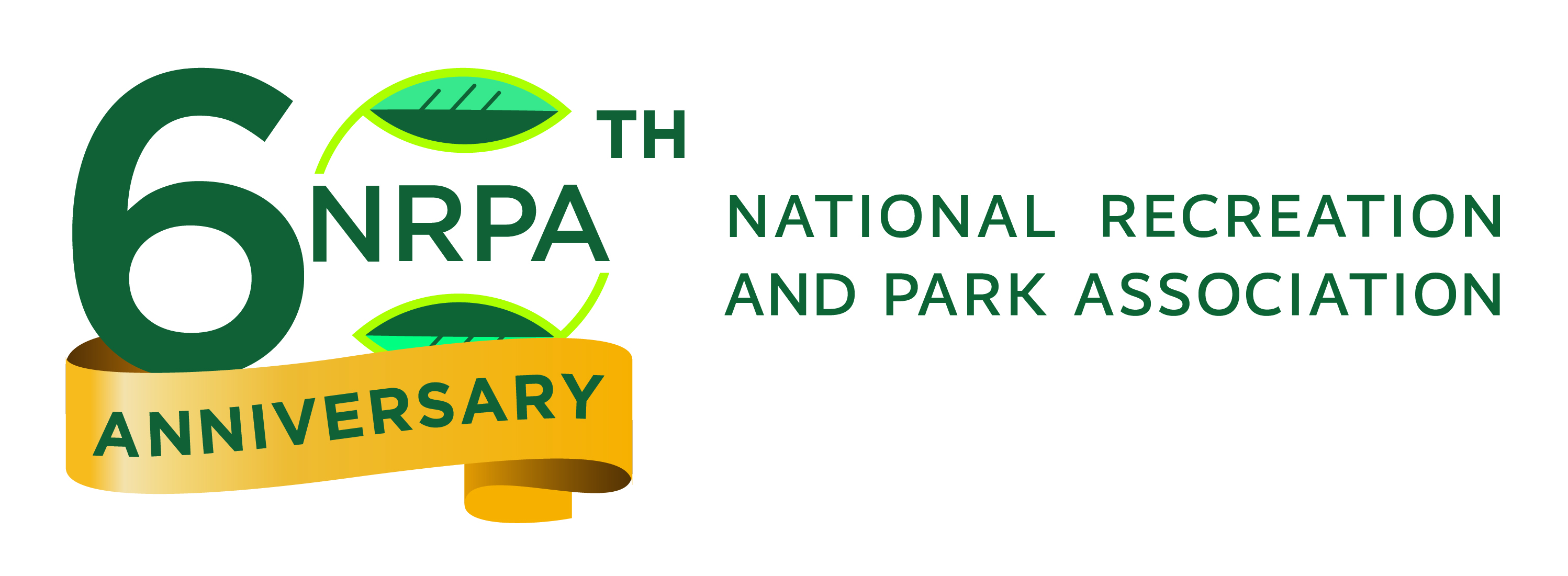
Pictured: Two community members pose with a “Parks for Pollinators BioBlitz” sign at a BioBlitz event in Riverview Park, Nebraska City, Nebraska. Photo courtesy of Friends of Nebraska City.
This September, 120 organizations — from zoos and museums to local and state parks departments — came together to observe and document the incredible species that thrive in our parks through NRPA’s Parks for Pollinators BioBlitz. Spanning from Florida to Oregon, participants across more than 35 states participated in this nationwide phenomenon.
Thanks to the enthusiasm and dedication of participants, this year’s BioBlitz counted almost 20,000 more observations than last year’s. Nearly 5,000 people made 63,325 observations, documenting 6,080 species of flora and fauna. The most identified pollinators were bees and butterflies, including the gulf fritillary, monarchs and the eastern bumble bee. If you would like to check out what species were found or where projects were held, visit the iNaturalist project to see the regional iNaturalist pages with all our participating agencies and organizations.
At its core, the BioBlitz is about more than numbers and data. It’s truly about connecting communities. Park and recreation professionals across the country are using the BioBlitz experience to inspire new conservation efforts, engage families and strengthen community partnerships.

Pictured Right: Three community members look for pollinators during a BioBlitz hosted at Mitch Park in Edmond, Oklahoma. Photo courtesy of City of Edmond, Oklahoma.
As Ashley Bias, Recreation and Events Manager at City of Oxford, AL Parks and Recreation Department, shared, “Not only did I get to have meaningful conversations with the community we serve about pollinators and their habitats, but I also reached out and made connections with local extension offices and started working on ideas to build pollinator gardens in our parks. The project was very meaningful to myself and the community and has inspired me to do more.” Agencies are using their BioBlitz findings to inform maintenance protocols, design pollinator gardens and create educational opportunities for residents of all ages. To learn more about how agencies are using data from the BioBlitz and connecting with park users, check out this year’s Planning Hub Call here (password BioBlitz2025!).

Park and recreation agencies that hosted a BioBlitz event in September had the chance to win one of three $1,000 prizes or one of three Scotts Miracle-Gro prize packs, to help with pollinator habitats or programs. The story of one agency’s big win — and what they did with the money — can be found here.
Congratulations to all our winners this year!
The three winners of the $1,000 prizes are:
- Centerton Parks and Recreation, Centerton, Arkansas
- Cobb PARKS, Cobb County, Georgia
- Frisco Parks & Recreation, Frisco, Texas
The three Scotts Miracle-Gro prize pack winners are:
- City of Allen Parks and Recreation, Allen, Texas
- Cleveland Metroparks, Cleveland, Ohio
- Trenton Parks and Recreation, Trenton, Michigan
Thank you to everyone who participated and hosted events in their communities. NRPA is in the process of collecting stories, images and feedback from everyone who signed up for our 2025 BioBlitz. We hope to see even more agencies and pollinator enthusiasts join us for the 2026 Parks for Pollinators BioBlitz.
The Parks for Pollinators campaign, hosted through a partnership between the National Recreation and Park Association (NRPA) and The Scotts Miracle-Gro Foundation, aims to raise public awareness of the pollinator crisis and encourage local action through public parks and recreation. NRPA and The Scotts Miracle-Gro Foundation believe parks play a key role in protecting and preserving pollinators and their habitats. Together, as part of ScottsMiracle-Gro’s GroMoreGood initiative, they are working to educate more children, families and communities about the importance of pollinators and what people can do to help.
Rukmini Kalamangalam is a program specialist at NRPA.


